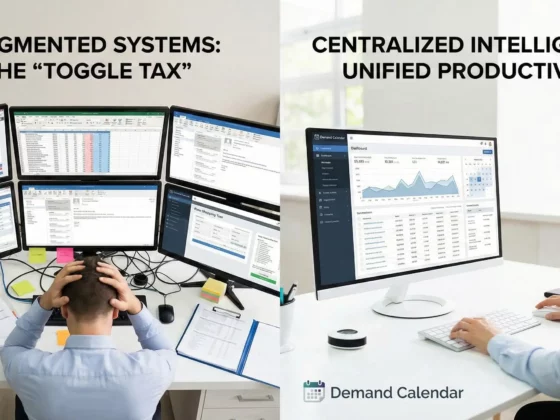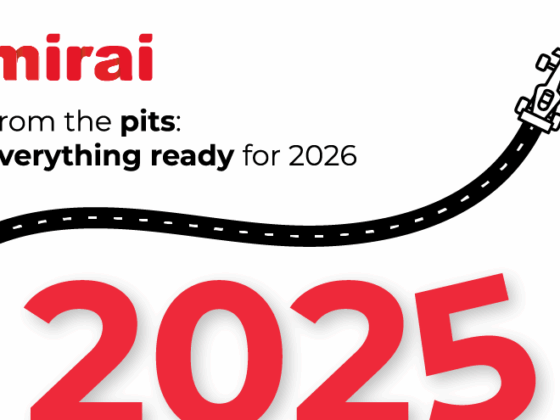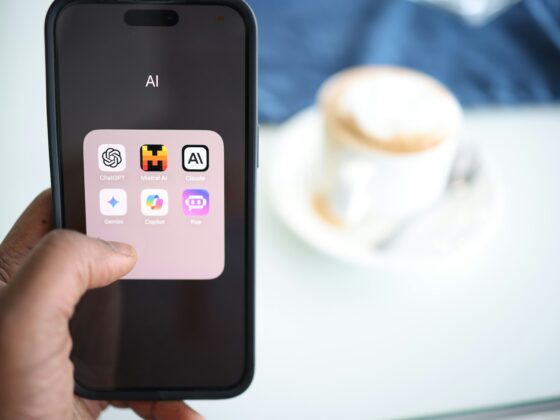By Olga Rotanenko, Commercial Director at Mindy Support
Companies are using cutting-edge AI tech to get ahead of their rivals. They’re improving customer service, revolutionizing content production, and simplifying complex data analysis.
This article looks at real-life generative AI examples and case studies about how top companies are using LLMs and generative AI in their work to come up with new ideas, boost productivity, and grow.
Real-World Examples of LLMs and Generative AI in Action:
Amazon’s Journey to Enhanced Customer Service
Amazon, a giant in the e-commerce world known to everyone, including children, is not just about shopping. It’s also a leader in using cutting-edge technologies like large language models (LLMs). By leveraging LLM technology, Amazon’s chatbots can understand and process natural language, providing customers with quick and relevant responses to their questions and concerns. This integration has led to improved customer satisfaction, as issues are resolved more swiftly and with greater precision.
Amazon recognizes the importance of human agents in handling complex or nuanced issues that AI may not fully understand. This hybrid approach combines the strengths of both AI and human intelligence, ensuring a balanced and effective customer service operation.
Technology Used: Amazon Lex
Coca-Cola’s Innovative Marketing
Let’s move on to one of the most iconic brands, Coca-Cola, which has always prioritized its marketing efforts. By integrating advanced language models like GPT-4, the company has been able to create a diverse range of high-quality content, from engaging social media posts to compelling marketing copy and informative articles. GPT-4’s capability to generate human-like text allows Coca-Cola to maintain a consistent and authentic brand voice across multiple platforms.
Beyond content creation, Coca-Cola has utilized GPT-4 to gain valuable insights into consumer preferences and market trends. By analyzing vast amounts of data and generating comprehensive reports, GPT-4 helps the company understand emerging patterns and shifts in consumer behavior.
Technology Used: OpenAI’s GPT-4
JPMorgan Chase’s Data Analysis Revolution
JP Morgan Chase has effectively utilized IBM Watson to enhance accuracy and efficiency within its financial operations, leading to significant improvements in both performance and client satisfaction.
For example, Watson’s natural language processing (NLP) allows the bank to swiftly analyze vast amounts of unstructured data, such as legal documents and financial reports, with high precision. This automation not only reduces the time required to process complex information but also minimizes the risk of human error, ensuring more accurate and reliable outcomes.
Furthermore, JP Morgan Chase has employed IBM Watson to bolster its risk management and fraud detection systems. Watson’s machine learning algorithms continuously analyze transactional data and identify unusual patterns that may indicate fraudulent activity.
Technology Used: IBM Watson
Netflix’s Personalized Recommendations
Are there any Netflix lovers here? Imagine lounging on the sofa with snacks, enjoying your favorite series and movies. Netflix takes your preferences seriously, using advanced technology to enhance its recommendation system. By analyzing extensive user data, such as viewing history and interaction patterns, Netflix gains a deep understanding of individual tastes. This enables them to suggest content that closely matches your unique interests, improving your overall experience and satisfaction. This personalized approach not only keeps viewers engaged but also helps discover new content that they might not have found on their own.
Technology Used: Proprietary recommendation algorithms enhanced by LLMs like BERT.
Spotify’s Music Recommendation System
Admit it, you’re either a Spotify or Apple Music user. I’ll let you in on a secret: I’m a Spotify girl. Like Netflix, Spotify leverages large language models (LLMs) to enhance its music recommendation and discovery features. By analyzing user listening habits, playlists, and interactions with the platform, these models enable Spotify to understand individual music preferences and predict which songs or artists users will enjoy. This personalized approach not only introduces users to new music they might love but also keeps them engaged with the platform. It’s like having a personal DJ who knows exactly what you want to hear, even before you do.
Technology Used: Proprietary AI models and BERT-based systems
The New York Times’ Content Personalization
The New York Times, a leading global media outlet, is utilizing generative AI to optimize advertising strategies. This technology enables advertisers to maximize their impact by suggesting the best placements for ad campaigns based on the advertisement’s messaging. It also helps identify and target niche audiences that were previously difficult to reach, ensuring a more precise and effective marketing approach. By refining audience segmentation and ad placement, this AI tool not only enhances campaign performance but also increases return on investment for advertisers. This innovation demonstrates
Technology Used: OpenAI’s GPT-3
Super Bowl Advertising Campaigns
“If it doesn’t matter who WINS or loses, then why do they keep SCORE?” This famous quote by Vince Lombardi, one of America’s greatest coaches, perfectly captures the competitive spirit that keeps the Super Bowl at the pinnacle of sports entertainment. With millions of viewers tuning in, the Super Bowl is a goldmine of data. Generative AI can analyze this vast amount of viewer data to create highly targeted ads that resonate with different audience segments based on their preferences and behaviors. This technology not only enhances the relevance and impact of advertisements but also helps brands connect more deeply with their audience. As the Super Bowl evolves, so do the tools and strategies that make it a marketing powerhouse.
Technology Used: Various LLMs for content creation and analysis
IBM’s Watson in Healthcare
In the healthcare sector, IBM Watson is utilizing large language models (LLMs) to revolutionize clinical decision support. By analyzing vast amounts of medical literature and patient data, Watson provides evidence-based diagnosis and treatment recommendations. This advanced AI technology aids healthcare professionals in making more informed decisions, improving patient outcomes and streamlining the diagnostic process. Additionally, Watson can identify emerging trends and patterns in healthcare, contributing to early detection and prevention of diseases.
Technology Used: IBM Watson Health
Leveraging Cutting-Edge Technology to Achieve Success With LLMs
Large Language Models (LLMs) utilize a range of technologies and techniques. Here’s a summary of some key technologies involved:
- Deep Learning: The core technology behind LLMs. These models use neural networks with many layers to process and generate text.
- Transformers: A type of neural network architecture introduced by Vaswani et al. in the paper “Attention is All You Need.” Transformers are crucial for handling long-range dependencies in text and are the foundation for many LLMs.
- Attention Mechanism: A component of transformers that helps the model focus on different parts of the input text when generating or understanding language.
- Pre-training and Fine-tuning:
- Pre-training: LLMs are initially trained on a large corpora of text data to learn general language patterns.
- Fine-tuning: After pre-training, models are further trained on specific datasets to specialize in certain tasks or domains.
- Tokenization: The process of breaking down text into smaller units (tokens) that the model can process. Techniques like Byte Pair Encoding (BPE) or WordPiece are often used.
- Natural Language Processing (NLP) Techniques: Various techniques and algorithms used to process and understand human language, including parsing, part-of-speech tagging, and named entity recognition.
- Evaluation Metrics: Metrics like perplexity, BLEU score, and others are used to assess the performance of language models.
- Ethics and Safety Mechanisms: Technologies and guidelines to ensure that the models are used responsibly and ethically, including mechanisms to prevent harmful outputs.
Conclusion
You can already see how LLMs are making waves worldwide, and tomorrow, they’ll become even more integral as leading companies adopt them to boost their efforts. From Amazon’s chatbots enhancing customer service to Coca-Cola’s creative content and JP Morgan Chase’s financial optimization with IBM Watson, these technologies are driving innovation and efficiency. Netflix’s personalized recommendations and Salesforce’s automated reports demonstrate AI’s impact on tailored experiences and analytics. As more companies embrace these tools, they’re not just refining their operations but also setting new standards for AI success. The key takeaways highlight the need for continuous learning, human-AI collaboration, and ethical practices, setting the stage for future breakthroughs.
By Olga Rotanenko
Commercial Director at Mindy Support








